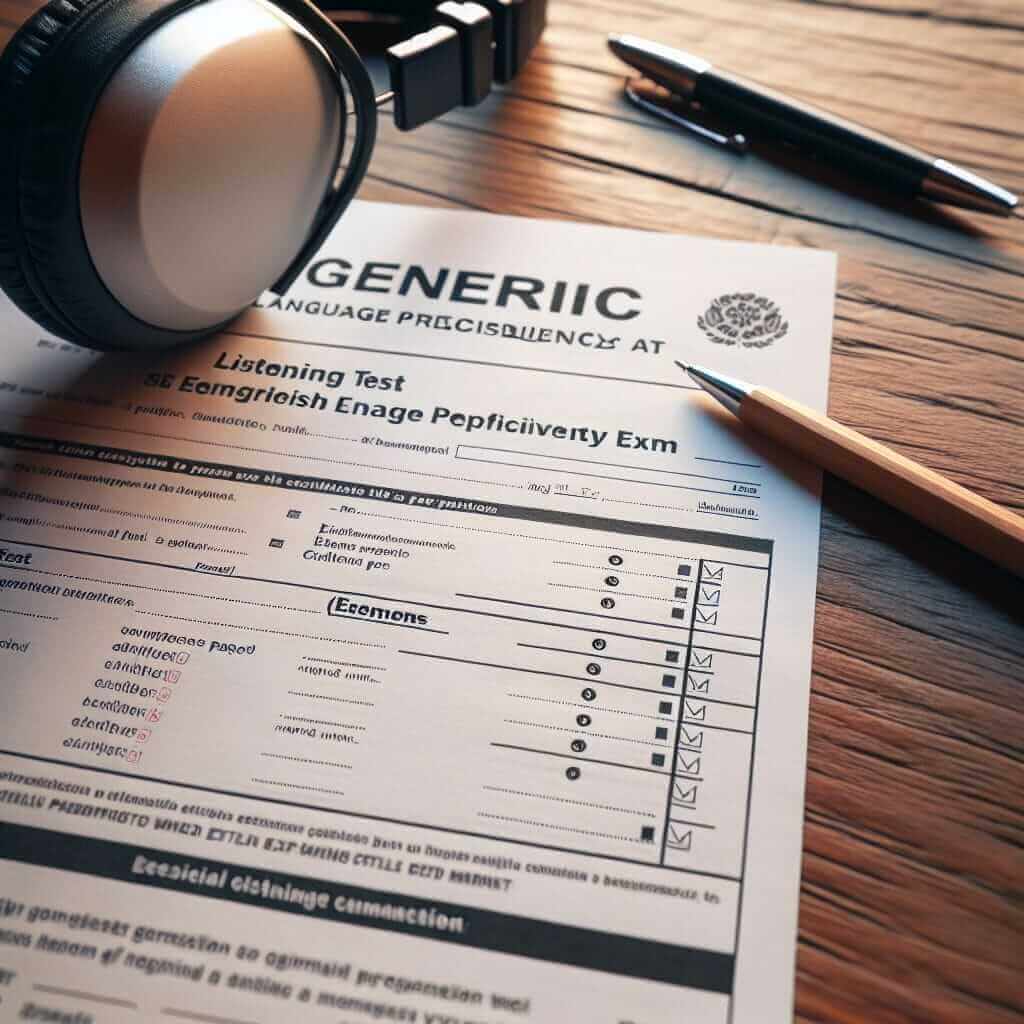As an IELTS instructor with over two decades of experience, I’ve witnessed countless students stumble, not because of their English proficiency, but due to a lack of strategic approach to the exam. This is especially true for the Listening test, where understanding context is key. You might be wondering, “What does ‘Peter wants to drink’ have to do with any of this?” The answer is simple: everything. This seemingly random phrase could be the key to answering questions correctly in your IELTS Listening test.
The Importance of Context in IELTS Listening
The IELTS Listening test assesses your ability to understand spoken English in various contexts. It’s not just about catching individual words; it’s about deciphering meaning, identifying speakers’ opinions, and following the flow of conversations.
Let’s imagine a scenario in the Listening test. You hear a conversation where someone says, “Peter wants to drink orange juice, but there’s none left. He’ll have to settle for…”
Now, the question isn’t about Peter’s preference. It could be:
- What does Peter decide to drink? This requires you to listen for the alternative Peter chooses.
- What is Peter’s reaction to the situation? This assesses your ability to understand tone and intonation to gauge emotion.
See? “Peter wants to drink” is just the tip of the iceberg. The real challenge lies in using the context to answer the specific question asked.
Honing Your Contextual Understanding Skills
Here’s how you can improve your ability to understand context in the IELTS Listening test:
-
Practice Active Listening: Don’t just passively hear the audio. Pay attention to the speakers’ tone, the relationship between them, and the overall situation.
-
Identify Keywords: Train yourself to pick out keywords and phrases that signal important information. These could be names, dates, locations, or changes in topic.
-
Predict Answers: Before the audio begins for each section, read the questions carefully. Try to predict what kind of information you need to listen for.
-
Don’t Get Stuck: If you miss an answer, don’t dwell on it. Move on to the next question. You can always go back and make an educated guess later.

Example from a Real IELTS Listening Test
Let’s look at a question from a past IELTS Listening test:
Audio: “…the museum offers guided tours in several languages, including French, Spanish, and Mandarin. These tours are available at no extra cost…”
Question: What is the price of the guided tours?
If you only focused on the words “guided tours” and “cost,” you might assume there’s a fee. However, the phrase “at no extra cost” provides the crucial context. The correct answer is that the tours are free.
Top Tips for IELTS Listening Success
- Develop your vocabulary: A wider vocabulary base will help you understand a wider range of contexts.
- Listen to English regularly: Expose yourself to different English accents and speaking styles by listening to podcasts, watching movies, or engaging in conversations.
- Practice with past papers: Familiarize yourself with the format of the Listening test and the types of questions asked.
Remember, the IELTS Listening test is not just about what you hear, but about what you understand. Master the art of contextual comprehension, and you’ll be well on your way to achieving your desired band score.